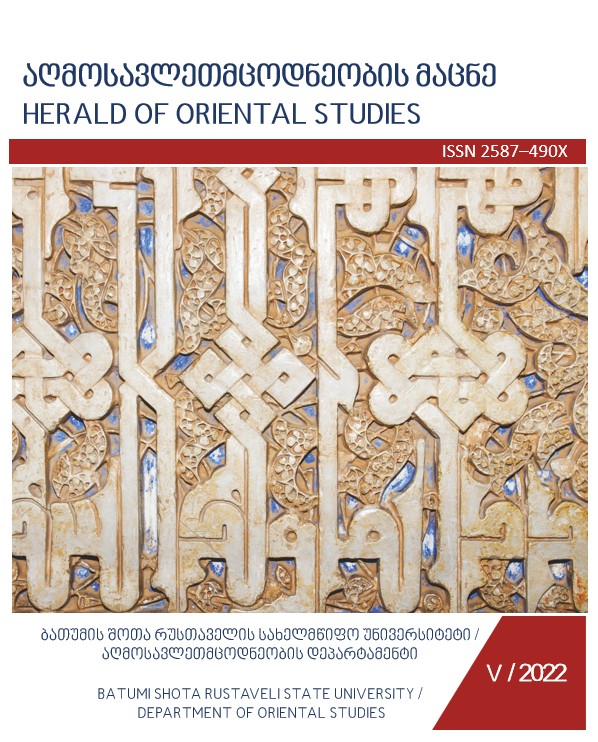რეცენზია ილიას სახელმწიფო უნივერსიტეტის პროფესორ გიორგი სანიკიძის მონოგრაფიაზე-„ირანი და სამხრეთ კავკასიის ქვეყნები“ განსხვავებული რეალიები, განსხვავებული შესაძლებლობები, გამომცემლობა, ილიას სახელმწიფო უნივერსიტეტი, თბილისი, 2022.
Review on the monograph „Iran and the countries of the South Caucasus“ in different realities, different opportunities, Publishing house of Ilia Chavchavadze State University, Tbilisi, 2022.
Author(s): Emzar MakaradzeSubject(s): History, Political history, WW II and following years (1940 - 1949), Book-Review
Published by: ბათუმის შოთა რუსთაველის სახელმწიფო უნივერსიტეტი, ჰუმანიტარული მეცნიერებატა ფაკულტეტის აღმოსავლეთმცოდნეობის დეპარტამენტის „ელექტრონული ჟურნალი“.
Keywords: Iran; Caucasus;
Summary/Abstract: Review on the monograph „Iran and the countries of the South Caucasus“ in different realities, different opportunities, Publishing house of Ilia Chavchavadze State University, Tbilisi, 2022. Georgian historiography comprehensively and systematically studied, analyzed and presented the various realities and opportunities of Iran and the countries of the South Caucasus, as well as various aspects of political, economic and cultural life. The monograph consists of an introduction, seven chapters and a conclusion; there are also attached an annotation and a bibliography in English. The chapters briefly deal with the historical relations between Iran and the countries of the South Caucasus; explore the problems associated with the perception of history; focuses on various aspects of political relations: Iran's position in conflicts in the South Caucasus; Iran's perception of the role of external actors in the region; dynamics of economic relations; the impact of the sanctions imposed against Iran on Iran's relations with the countries of the region; the Iranian diaspora in the countries of the South Caucasus and the one among the peoples of the South Caucasus - in Iran; transit and trade significance of the South Caucasus for Iran; problems related to the demarcation of the Caspian Sea; factors that led to the actual defeat of Iran in the struggle for the oil / gas pipeline. There are also highlighted the various realities and opportunities that Iran has at its disposal in its relations with the countries of the region and which force Iran to pursue a different policy towards the countries of the South Caucasus. The monograph by Giorgi Sanikidze is performed at a high academic level and is of great interest to historians and students of the Faculty of Oriental Studies, as well as readers, researchers and the general public interested in this problem.
Journal: საერთაშორისო სამეცნიერო ჟურნალი „აღმოსავლეთმცოდნეობის მაცნე“
- Issue Year: 5/2022
- Issue No: 2
- Page Range: 266-268
- Page Count: 3
- Language: English, Georgian

